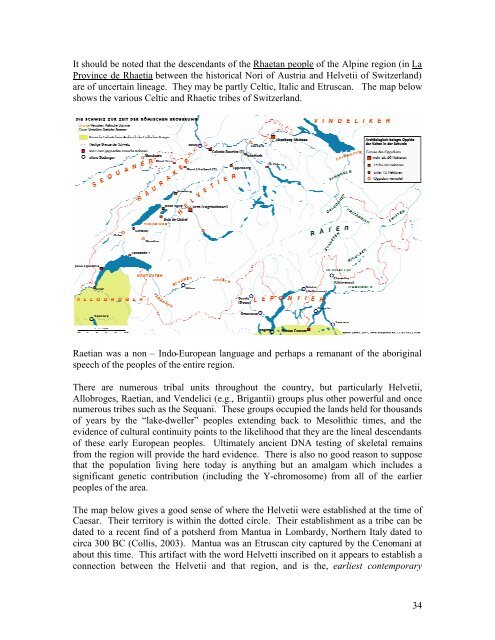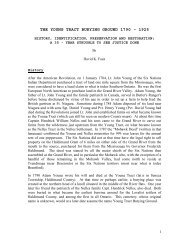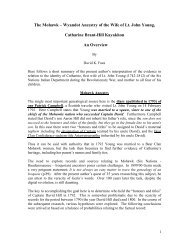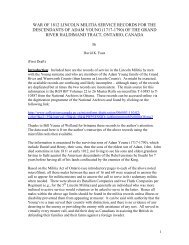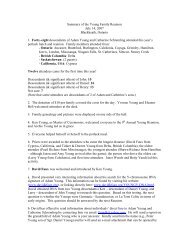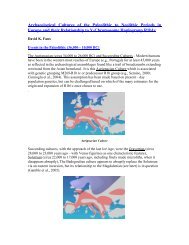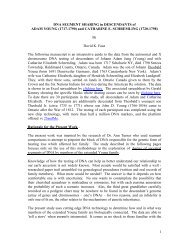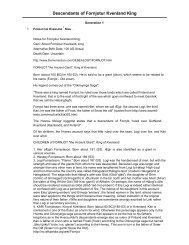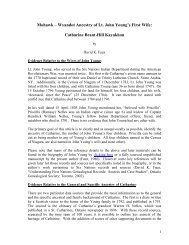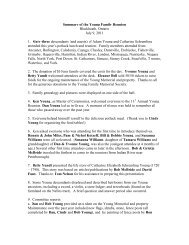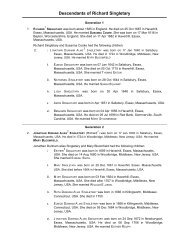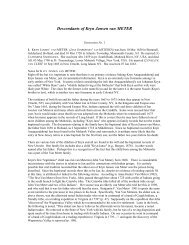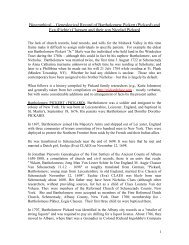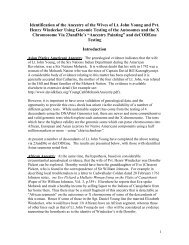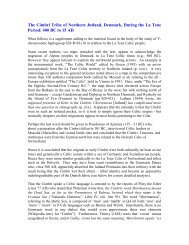Part 2 - Davidkfaux.org
Part 2 - Davidkfaux.org
Part 2 - Davidkfaux.org
Create successful ePaper yourself
Turn your PDF publications into a flip-book with our unique Google optimized e-Paper software.
It should be noted that the descendants of the Rhaetan people of the Alpine region (in LaProvince de Rhaetia between the historical Nori of Austria and Helvetii of Switzerland)are of uncertain lineage. They may be partly Celtic, Italic and Etruscan. The map belowshows the various Celtic and Rhaetic tribes of Switzerland.Raetian was a non – Indo-European language and perhaps a remanant of the aboriginalspeech of the peoples of the entire region.There are numerous tribal units throughout the country, but particularly Helvetii,Allobroges, Raetian, and Vendelici (e.g., Brigantii) groups plus other powerful and oncenumerous tribes such as the Sequani. These groups occupied the lands held for thousandsof years by the “lake-dweller” peoples extending back to Mesolithic times, and theevidence of cultural continuity points to the likelihood that they are the lineal descendantsof these early European peoples. Ultimately ancient DNA testing of skeletal remainsfrom the region will provide the hard evidence. There is also no good reason to supposethat the population living here today is anything but an amalgam which includes asignificant genetic contribution (including the Y-chromosome) from all of the earlierpeoples of the area.The map below gives a good sense of where the Helvetii were established at the time ofCaesar. Their territory is within the dotted circle. Their establishment as a tribe can bedated to a recent find of a potsherd from Mantua in Lombardy, Northern Italy dated tocirca 300 BC (Collis, 2003). Mantua was an Etruscan city captured by the Cenomani atabout this time. This artifact with the word Helvetti inscribed on it appears to establish aconnection between the Helvetii and that region, and is the, earliest contemporary34


